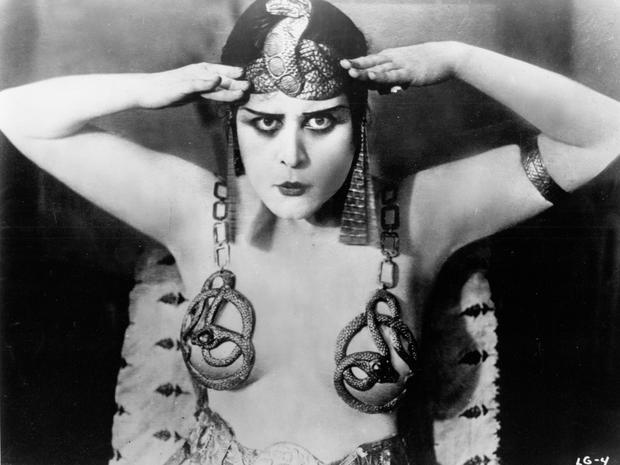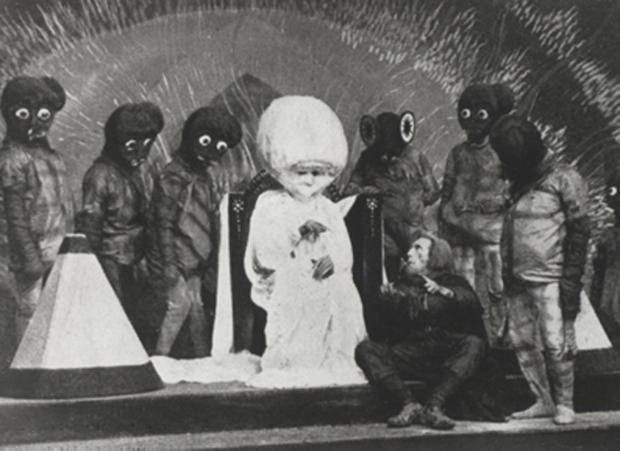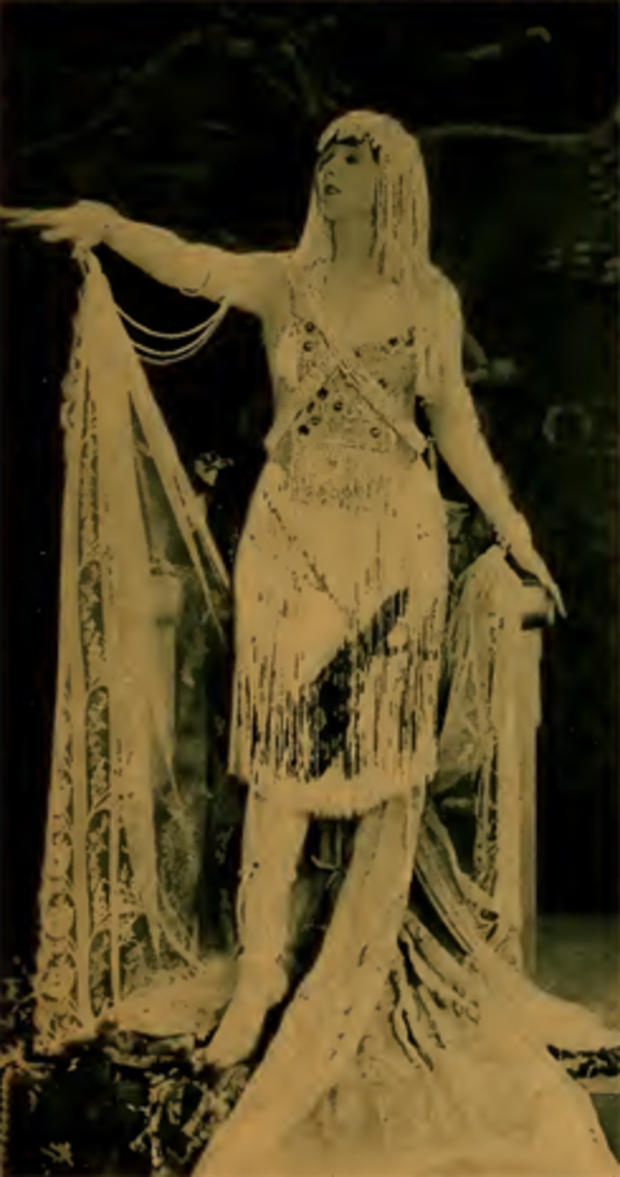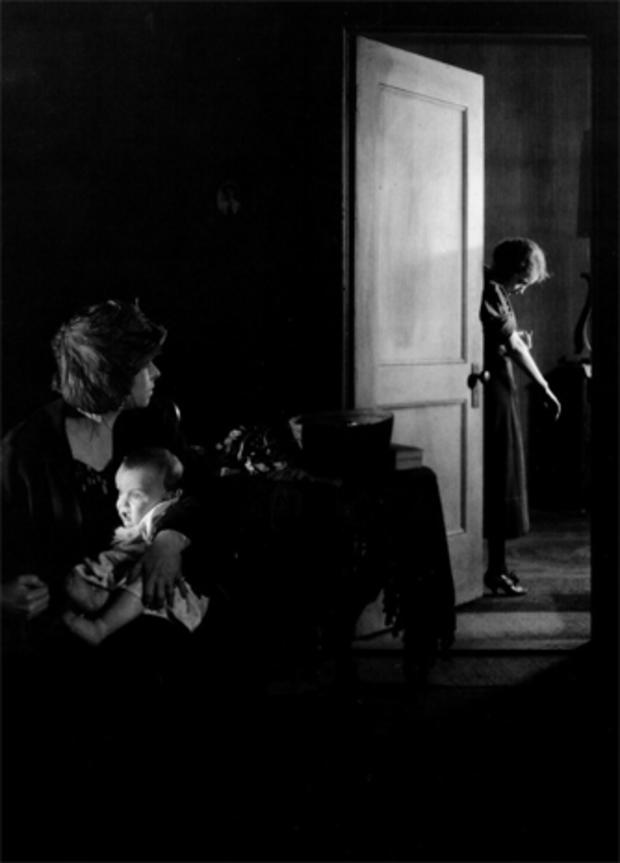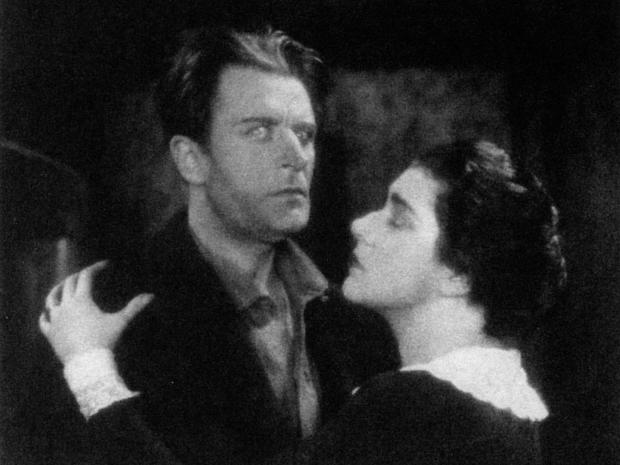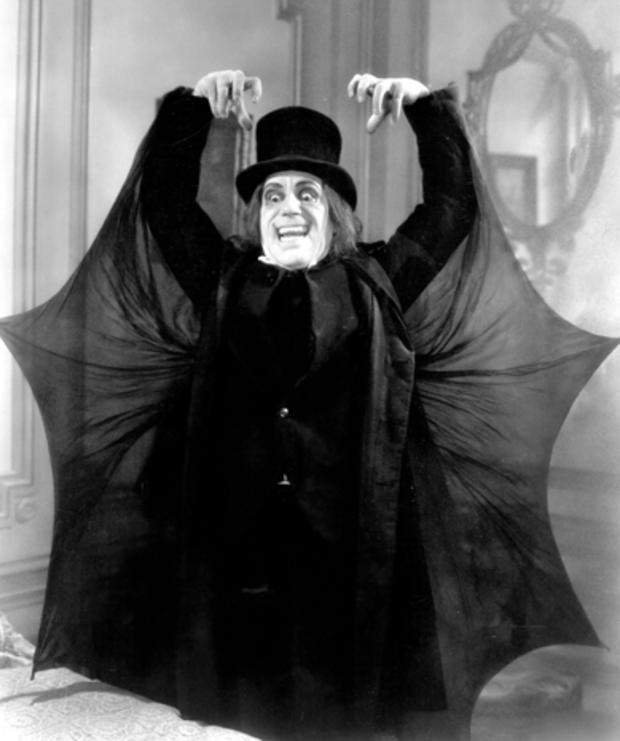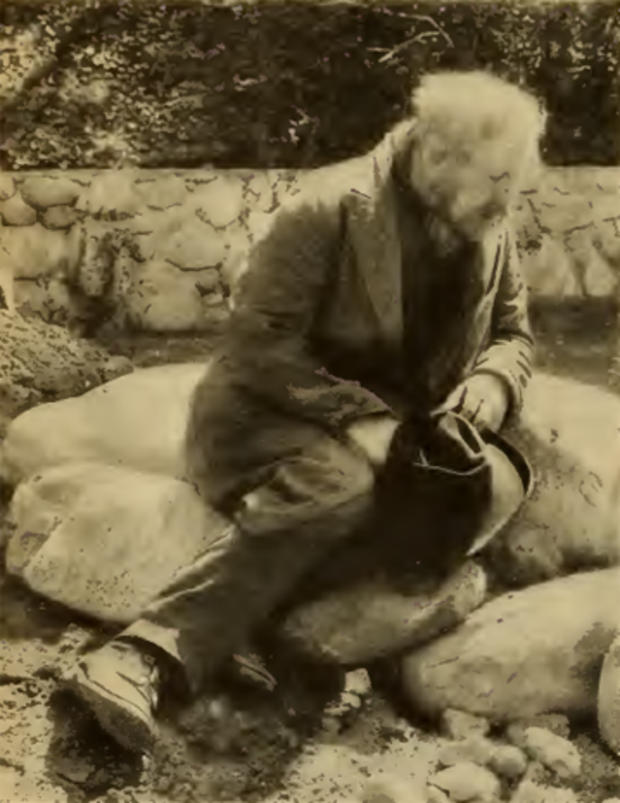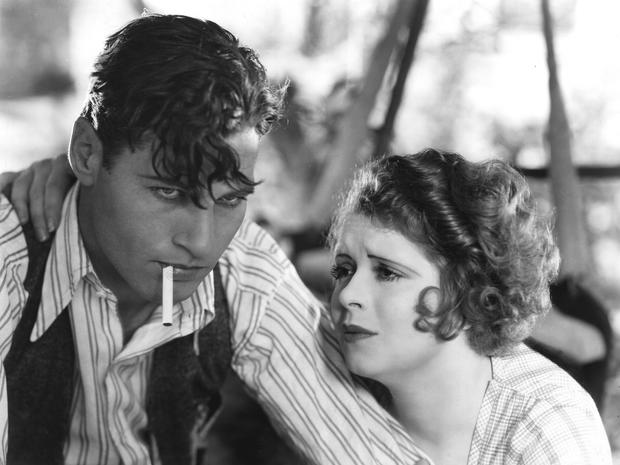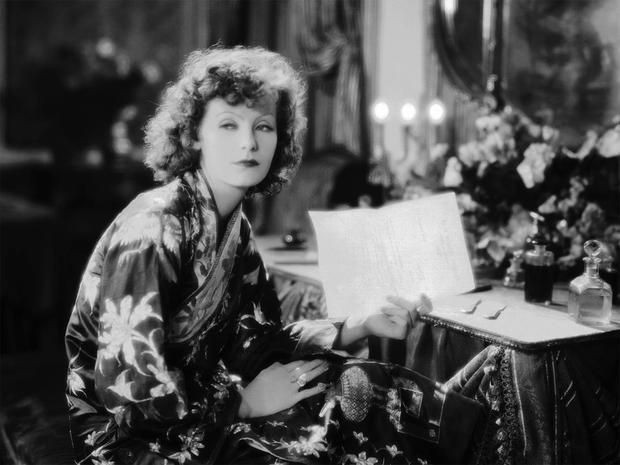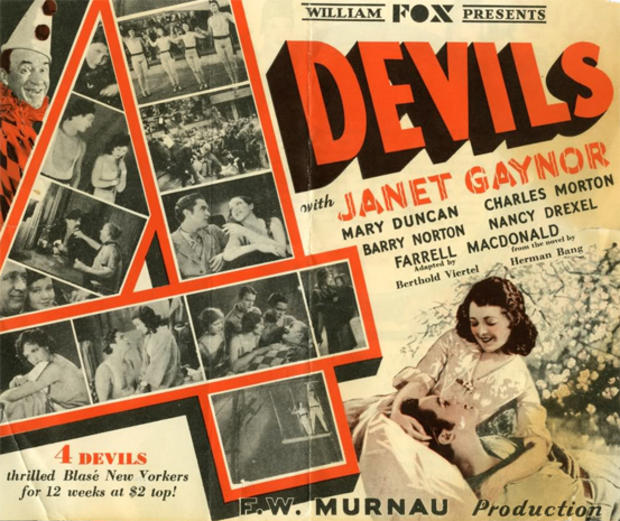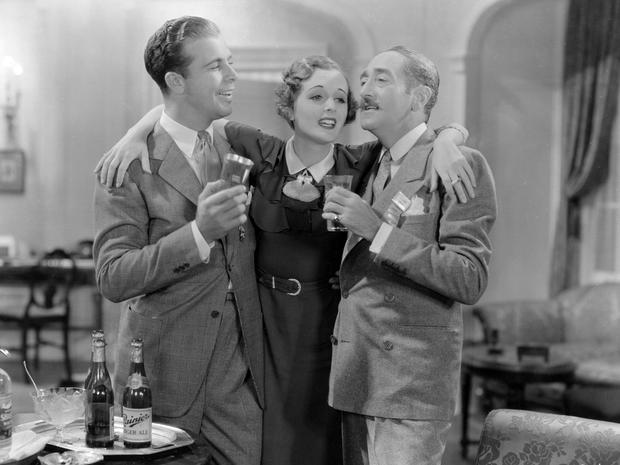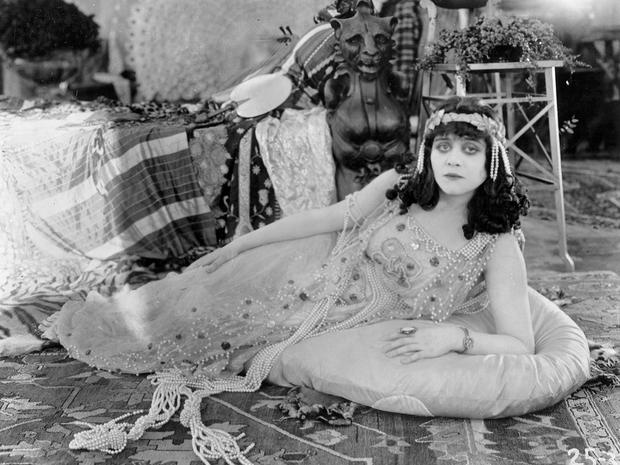Lost films
Left: Theda Bara in the risqué 1917 historical epic, "Cleopatra." Only a few fragments still exist, after the only known complete prints were destroyed in fires.
According to the Library of Congress, 70 percent of films from the silent era are lost - films which helped define the very language of cinema, and which captured the early years of the American Century. Even movies featuring box office stars or that were successful with audiences and critics were not immune from falling prey to time - to deteriorating nitrate prints, to vault fires, or to the disinterest or carelessness of studio archivists.
Film scholars around the world continue to search in archives and private collections for missing films, with occasional success. An early John Ford feature, "Upstream," was recently found at the New Zealand Film Archive, while the Cinemateque Francaise has uncovered previously-missing films by Ernst Lubitsch, Frank Capra and Tod Browing. The original Technicolor sequences from the 1925 version of "Ben-Hur" were found in a Czech film vault.
Click through the gallery to view some of the more notable missing films, then check your attic …
"The First Men in the Moon"
The British Film Institute says "The First Men in the Moon," produced by Gaumont British in 1919, was the first film adaptation of a story by H.G. Wells. It's one of 75 titles the BFI has included in their "Most Wanted" hunt for missing British films.
Since the "Most Wanted" initiative was launched in 2010, a few missing films have turned up, including "Love, Life and Laughter" (1923), located in an archive in Amsterdam; and a 1949 comedy, "Bless 'Em All," which was spotted being sold under a different release title on eBay.
"Queen of Sheba"
European prints of the Fox feature "Queen of Sheba" (1921) featured topless scenes of star Betty Blythe. Much of Fox's silent film archive perished in a fire in the 1930s. Only a 17-second fragment of film identified as "Queen of Sheba" survives.
"Human Wreckage"
After actress Dorothy Davenport's husband, Wallace Reid, died from a morphine overdose, she co-produced and starred in an independent anti-drug tale, "Human Wreckage" (1923). Billed as Mrs. Wallace Reid, she starred opposite Bessie Love, and took the film on a crusading tour across the country, speaking out in theaters, prisons, church groups, and other organizations against the "fiendish peddlers" of drugs.
The film, like many "orphan films" produced outside the Hollywood studio system, has not survived.
"The Great Gatsby"
F Scott Fitzgerald's "The Great Gatsby" has been filmed five times. The only version Fitzgerald lived to see was the 1926 silent film which starred Warner Baxter as Jay Gatsby, Lois Wilson as Daisy Buchanan, Neil Hamilton as Nick Cattaway, and William Powell as George Wilson. It was directed as a lightweight, scandalous entertainment.
And what did the Fitzgeralds think of the film? "It's ROTTEN and awful and terrible and we left," wrote Zelda.
Only the trailer, which features shots from a high-society party, lovers in a clinch, and a man clutching a gun, survives.
"The Mountain Eagle"
The most-wanted of missing films by the British Film Institute is the second feature directed by Alfred Hitchcock. Set in Kentucky but filmed in Germany and Austria, "The Mountain Eagle" is a romantic melodrama starring Nita Naldi, Malcolm Keen and Bernhard Goetzke.
Shot in 1925, it was screened for the trades in 1926, then shelved. But in 1927, in the wake of Hitchcock's subsequent success, "The Lodger," it was finally released. Poorly received, "The Mountain Eagle" disappeared forever.
Hitch didn’t seem to mind that it was lost. "It was a very bad movie," he told Francois Truffaut.
"London After Midnight"
The most-sought-after of lost films is "London After Midnight" (1927), Tod Browning's silent thriller starring Lon Chaney as the vampiric suspect in a lurid murder. Since a vault fire destroyed the last known copy, only haunting stills such as the one at left survive to thrill and tantalize movie buffs.
"The Way of All Flesh"
Emil Jannings won the very first Academy Award for Best Actor for his performances in "The Last Command" and "The Way of All Flesh" (left), in which he played a bank clerk who is robbed and left destitute, reduced to a derelict's existence. [A contemporary movie fan magazine noted, perhaps not accurately, that the tramp's clothes he wore were purchased from a morgue.]
Directed by Victor Fleming ("Gone With the Wind"), "The Way of All Flesh" is a lost film, with no known copy in an archive or private collection. It is therefore the only Oscar-winning performance which cannot be viewed today.
"Ladies of the Mob"
Clara Bow was one of the silent era's biggest actresses, and she starred in the first Oscar-winner for Best Picture, "Wings" (1927). But even her status in Hollywood couldn’t prevent half of her films from disappearing.
All four of her features from 1928 are lost, including William Wellman's "Ladies of the Mob" (left, with Richard Arlen), which was reputed to feature her best performance.
"The Divine Woman"
She was divine, one of MGM's most luminous stars. But Greta Garbo's appearance in the 1928 silent feature "The Divine Woman" is only available today in fragments.
"4 Devils"
F.W. Murnau's 1927 "Sunrise" was one of the greatest of silent dramas. His follow-up, the 1928 circus drama, "4 Devils," starring Janet Gaynor, Charles Morton, Mary Duncan and Barry Norton, was highly-praised. The New York Times reviewer wrote, "Not only are the players handled with unrivalled skill, but the photography is soft and seductive, calling attention subtly to the realism and art that pass in turn before the onlooker."
But we'll never know. According to legend, actress Mary Duncan borrowed the only known print from Fox's archive, and then lost it.
"Convention City"
Before the Production Code came into effect, Hollywood films were loose with the presentation of sex, drugs and vice. The pre-code comedy "Convention City" (1933), featuring a sparkling cast that included Dick Powell, Mary Astor and Adolphe Menjou, told of the boozy, seductive shenanigans that some company employees get into during a convention in Atlantic City.
The film was banned, and enforcement of the Production Code was stepped up in its wake, thanks to complaints about its lewdness. The nitrate negative was junked in 1948, and the Atlantic City revelers would revel no more.
"Cleopatra"
Theda Bara in "Cleopatra" (1917).
For more info:
National Audio-Visual Conservation Center, at the Library of Congress' Packard Campus, Culpeper, Va.
Follow the @LibraryCongress on Twitter
American Silent Feature Film Database (Library of Congress)
British Film Institute's "Most Wanted" List
By CBSNews.com senior producer David Morgan
